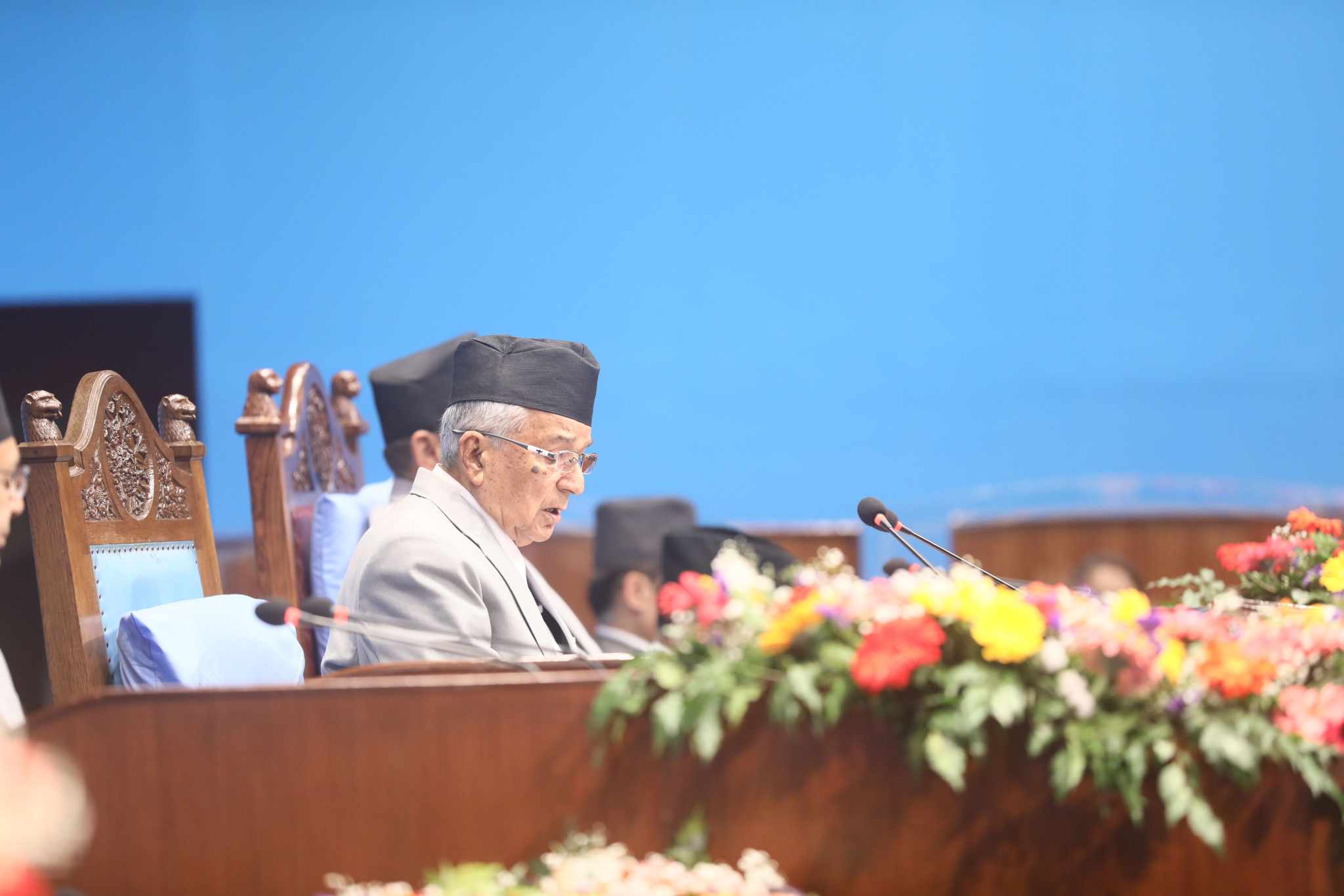KATHMANDU: The government is set to propel the next decade forward as the ‘Information Technology Decade,’ aiming to foster socio-economic transformation and prosperity by leveraging information technology as the cornerstone of digital transformation.
Presenting the government’s policies and programs for the upcoming fiscal year in a joint session of the federal parliament today, President Paudel underscored Nepal’s ambition to emerge as a global information technology hub, with a focus on developing the IT industry as a major source of employment and service export.
The policies and programs outline ambitious initiatives, including the creation of at least 5,000 jobs through the establishment of IT workstations in strategic locations across Kathmandu Valley and each province.
Additionally, legal and institutional frameworks will be established to ensure the safe and effective use of communication and information technology systems, with plans to revise the Digital Nepal framework.
President Paudel emphasized the importance of enhancing internet and data exchange platforms to facilitate seamless interconnectivity among electronic systems.
The government aims to operationalize citizen service centers in collaboration with local levels to streamline public service delivery.
Furthermore, efforts will be directed towards improving the quality, accessibility, and safety of broadband services, alongside accelerating the expansion of high-capacity optical fiber networks and launching satellite-based internet services in remote and rural areas.
Institutional mechanisms will be established to enhance research, response, and public awareness on cybersecurity-related issues, with a focus on increasing digital literacy among women, minorities, and marginalized communities.
The government also aims to advance the process of launching Nepal’s own satellite into orbit and developing standards for constructing and operating data centers.
Additionally, plans are underway for establishing an Information Technology Knowledge Park.
The policies and programs underscore the importance of ensuring the safety and reliability of information technology systems used by public bodies through technical testing and adopting domestically developed software for government use.
Moreover, the government plans to modernize security printing processes and revamp the postal service to make it more efficient and technology-friendly, aligning it with e-commerce trends.
President Paudel also highlighted the need for policy, legal, and structural reforms to enhance the professional development of the mass media sector, promote dignified and managed use of social media, and conduct media literacy campaigns.
Plans are underway to establish Media Villages in all provinces, with preparatory work initiated for the Krishnasen Media Village in Dang in collaboration with Lumbini Province.
In addition, efforts will be made to encourage consolidation and transfer of ownership rights among television, FM, and internet service providers.
RSS









Comment